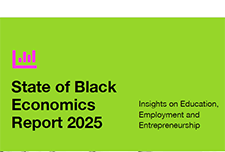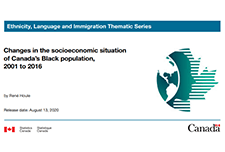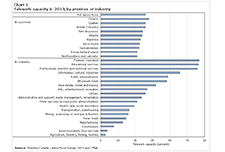Canada’s Black population has grown significantly over the last two decades and now accounts for 4.3% of the Canadian population. This diverse community includes those with deep historical roots, particularly in Atlantic Canada, alongside recent migrants from the Caribbean, Africa and beyond. Notably, 60% of Black Canadians were born outside the country. This diversity brings a rich array of cultures, religions, languages and experiences that contribute to the vibrancy of Black communities countrywide.
However, Canada’s history of slavery, segregation and deeply embedded anti-Black racism continues to shape its institutions, including media, housing, health care, the justice system and access to services. This report will focus on the aspects most directly related to economic disparity – education, employment, leadership and entrepreneurship – while recognizing the complex relationships across dimension.
There is considerable research that traces the contributions of the Black population to generating wealth for others. This research also outlines the ways in which the history of slavery, segregation and anti-Black racism in education, employment and entrepreneurship have prevented Black Canadians from creating and accumulating wealth for themselves. The data clearly show higher levels of poverty for Black Canadians, as well as lower levels of property ownership and less intergenerational wealth than other segments of the population. While median income of Black Canadians has increased in recent years, a significant gap remains.
Systemic racism against Black Canadians is deeply embedded in societal structures, institutions and individual attitudes. This limits economic inclusion and social mobility. The United Nations defines systemic racism against Africans and people of African descent as “the operation of complex, interrelated systems of laws, policies, practices and attitudes in governmental institutions, the private sector and societal structures that, combined, result in direct or indirect, intentional or unintentional, de jure or de facto discrimination, distinction, exclusion, restriction, or preference based on race, colour, descent, or national or ethnic origin.” Addressing these issues requires comprehensive and integrated solutions based on disaggregated data and an intersectional approach, recognizing how racism impacts individuals differently based on gender identity, ethnicity, religion, age, sexual orientation and other dimensions of identity.
This report, the State of Black Economics Report, synthesizes the latest data and research on key areas of economic advancement for Black Canadians, including education, employment and entrepreneurship. It focuses on actionable strategies to foster inclusion within the skills and employment ecosystem.





